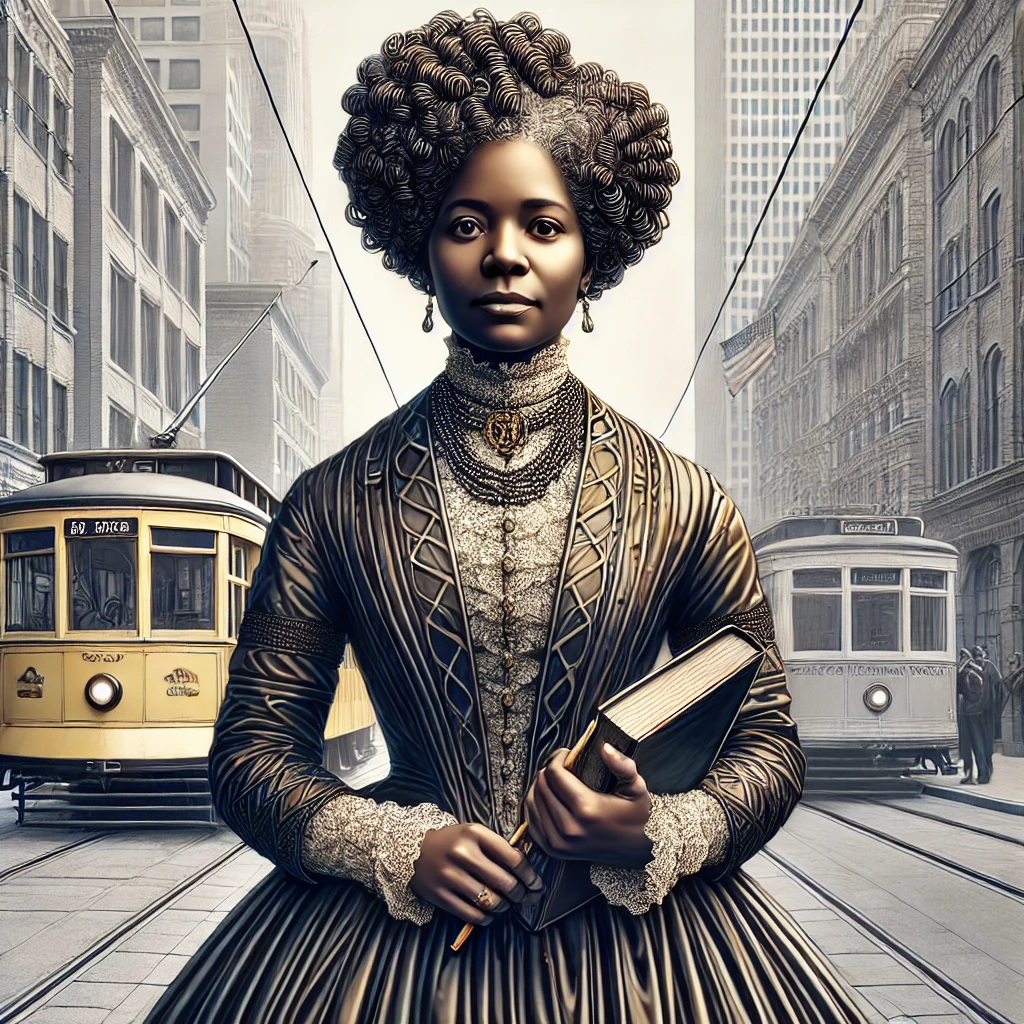
Elizabeth Jennings is a significant historical figure, as primarily recognized more for contributions towards civil rights, yet also recognized discovering a fundamental grounding for black children necessitating proper education later on.
Elizabeth Jennings and Her Bequest
Elizabeth Jennings Graham, often referred to as the “Rosa Parks of the 19th century,” was an African American educator and civil rights pioneer who made a significant impression in the fight against racial segregation in New York City. Born in 1827, Jennings became a schoolteacher and church organist, advocating for racial equality long before the Civil Rights Movement gained national attention.
Her most notable contribution occurred in 1854 when she refused to vacate a segregated streetcar in New York City. This act of defiance led to a landmark court case that set a precedent for desegregation in public transportation nearly a century before Rosa Parks’ famous protest in Montgomery, Alabama. Jennings’ victory in the case helped pave the way for racial inclusivity in public spaces.
Despite the challenges of her time, Jennings remained committed to education. She founded and operated a school for African American children in New York City, striving to provide quality education to those who were often denied access due to a beleaguered era.
The First Kindergarten and Its Educational Importance
Moving forward from Jenning’s previous experiences, an establishment of the first kindergarten in the United States was created by Elizabeth Palmer Peabody, whom was instrumental in introducing the concept.
Born in 1804, Peabody was an educator and educational reformer who established the first English-language kindergarten in Boston in 1860. Inspired by the German kindergarten model created by Friedrich Fröbel, Peabody recognized the importance of early childhood education in developing a child’s cognitive and social skills.
Her efforts in early education helped establish the foundation for modern kindergarten programs across the United States, emphasizing play-based learning and child-centered teaching methods.
Celebrating Black History Month: Recognizing Pioneers in Education
Black History Month is a time to honor the contributions of African Americans in various fields, including education. While figures such as Elizabeth Jennings Graham fought for civil rights and access to education, others like Mary McLeod Bethune and Charlotte Forten Grimké played critical roles in advancing African American educational opportunities.
Bethune, for example, founded the Daytona Educational and Industrial School for Negro Girls, which later became Bethune-Cookman University. Grimké was one of the first African American teachers to work in the South after the Civil War, helping to educate newly freed enslaved individuals.
The Intersection of Civil Rights and Education
The stories of Jennings and Peabody highlight the intersection of civil rights and education. While Jennings focused on fighting segregation and advocating for equal access, Peabody pioneered early childhood education, demonstrating how access to quality schooling could transform lives. The pursuit of education has long been a cornerstone of the fight for racial equality, with activists recognizing that knowledge is a powerful tool for empowerment and social change.
Honoring Their Legacy Today
In honor of Black History Month, recognizing pioneers like Elizabeth Jennings Graham and educators such as Elizabeth Palmer Peabody reminds us of the ongoing struggle for educational equality. Their efforts underscore the importance of accessibility, inclusivity, and the pursuit of knowledge as fundamental rights for all individuals, regardless of race or background.
Today, educators and activists continue to build on their legacy by advocating for equitable educational opportunities, addressing disparities in school funding, and ensuring that every child has access to quality learning environments.
Impression
The contributions of Elizabeth Jennings Graham and Elizabeth Palmer Peabody, though focused on different aspects of societal advancement, remind us of the power of resilience and determination in shaping a more inclusive and educated society. As we celebrate this upcoming Black History Month, it is crucial to honor the legacies of those who fought for equal access to education and civil rights, paving the way for future generations to thrive.
By reflecting on the past and recognizing the progress made, we can continue striving for a future where education serves as a beacon of opportunity for all.
No comments yet.









